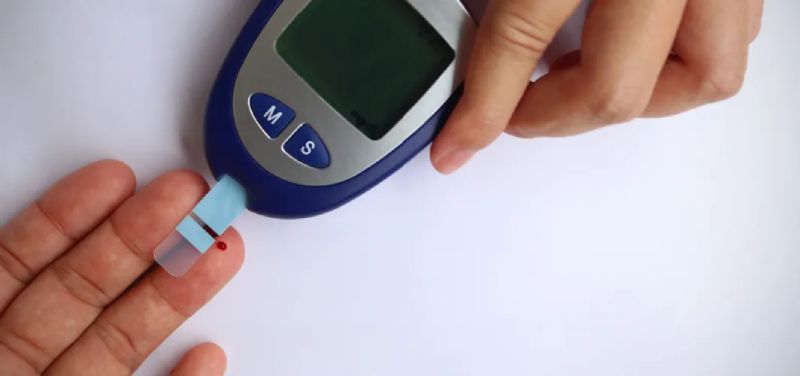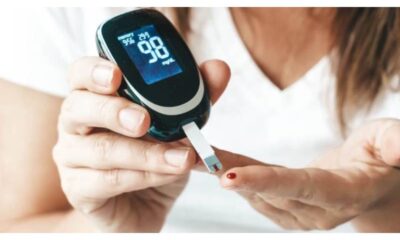For individuals living with diabetes, maintaining healthy blood sugar levels is a constant balancing act. Blood sugar tests play a crucial role in this ongoing process, providing valuable insights for effective diabetes management. This comprehensive guide explores the different types of blood sugar tests, their significance, and how to leverage them to optimize your diabetes care.
Understanding Blood Sugar:
Blood sugar, also known as glucose, is the primary fuel source for our cells. The body meticulously regulates blood sugar levels through the action of insulin, a hormone produced by the pancreas. Insulin helps glucose enter cells, where it’s used for energy production.
When Regulation Goes Awry: The Different Types of Diabetes
Diabetes disrupts the body’s ability to regulate blood sugar effectively. There are three main types:
- Type 1 Diabetes (T1D): An autoimmune disease where the body attacks insulin-producing cells in the pancreas. The body cannot produce enough insulin, leading to high blood sugar levels.
- Type 2 Diabetes: The most common form, characterized by insulin resistance (cells become less responsive to insulin) or insufficient insulin production.
- Gestational Diabetes: A temporary form of diabetes occurring during pregnancy. While it usually resolves after childbirth, women with gestational diabetes have a higher risk of developing type 2 diabetes later in life.
The Importance of Blood Sugar Monitoring: A Window into Your Health
Blood sugar tests provide a snapshot of your blood sugar levels at a specific point in time. Regularly monitoring blood sugar helps you and your healthcare team:
- Diagnose Diabetes: Blood sugar tests are used to diagnose diabetes and differentiate between types.
- Monitor Blood Sugar Control: Regular monitoring helps assess how well your current diabetes management plan is working.
- Identify Trends and Patterns: Tracking blood sugar levels over time allows you to identify patterns and factors that influence your blood sugar, like diet, exercise, and medication.
- Prevent Complications: By keeping blood sugar levels within a healthy range, you can significantly reduce the risk of diabetes-related complications like heart disease, stroke, nerve damage, kidney disease, and vision problems.
- Make Informed Decisions: Blood sugar test results empower you to make informed decisions about your diabetes management, including adjusting food choices, exercise routines, or medication dosages.
Types of Blood Sugar Tests: Choosing the Right Tool
There are several types of blood sugar tests, each with its own purpose and benefits. Here’s a breakdown of the most common ones:
- Fasting Blood Sugar (FBS): This test measures blood sugar levels after not eating or drinking anything (except water) for at least 8 hours. It’s a standard test for diagnosing diabetes.
- Random Blood Sugar (RBS): This test measures blood sugar levels at any given time, regardless of when you last ate. It can be helpful for identifying high blood sugar levels that may require immediate medical attention.
- Hemoglobin A1c (HbA1c): This test provides an overall picture of your blood sugar control over the past 2-3 months. It reflects the average percentage of hemoglobin (a protein in red blood cells) that has glucose attached to it. A higher HbA1c indicates poorer blood sugar control over time.
- Oral Glucose Tolerance Test (OGTT): This test measures blood sugar levels before and after drinking a sugary solution. It’s used to diagnose prediabetes (elevated blood sugar not yet in the diabetic range) or gestational diabetes.
Blood Sugar Monitoring Devices: Technology at Your Fingertips
Technological advancements offer convenient and user-friendly tools for blood sugar monitoring at home:
- Blood Glucose Meters: These portable devices require a small finger prick to draw a blood sample. The meter then provides a quick reading of your blood sugar level.
- Continuous Glucose Monitoring (CGM) Systems: These sensor-based devices are worn under the skin and measure blood sugar levels continuously throughout the day and night, providing real-time data and trends.
Frequency of Blood Sugar Testing: A Personalized Approach
The frequency of blood sugar testing varies depending on the type of diabetes, severity, treatment plan, and individual needs. You and your healthcare professional will determine the appropriate testing schedule for you. Here’s a general overview:
- Type 1 Diabetes: Typically requires frequent testing throughout the day, before and after meals, and before bedtime.
- Type 2 Diabetes: Testing frequency can range from several times a day to a few times a week, depending on individual needs and treatment plan.
- Gestational Diabetes: Testing frequency may be determined by your healthcare professional based on your specific situation.
Beyond the Numbers: A Holistic Approach to Diabetes Management
Blood sugar tests are a vital tool, but they are just one piece of the puzzle in managing diabetes effectively. A comprehensive approach incorporates other crucial elements:
- Healthy Eating: Focusing on a balanced diet that prioritizes fruits, vegetables, whole grains, and lean protein helps regulate blood sugar levels.
- Regular Physical Activity: Exercise improves insulin sensitivity and helps the body utilize glucose effectively. Aim for at least 30 minutes of moderate-intensity exercise most days of the week.
- Weight Management: Maintaining a healthy weight can significantly improve blood sugar control.
- Stress Management: Chronic stress can elevate blood sugar levels. Practice relaxation techniques like yoga, meditation, or deep breathing to manage stress effectively.
- Sleep for Success: Aim for 7-8 hours of quality sleep each night. Consistent sleep patterns promote better insulin sensitivity and overall well-being.
- Medication Adherence: Taking medications as prescribed by your doctor is crucial for effective blood sugar control.
- Regular Doctor Visits: Schedule regular checkups with your doctor to monitor progress, adjust treatment plans as needed, and address any concerns.
Interpreting Results: Working with Your Healthcare Team
Blood sugar test results can be confusing. Don’t hesitate to discuss them with your healthcare team. They will help you:
- Understand the meaning: Interpret your blood sugar results in the context of your overall health and treatment goals.
- Identify patterns: Analyze trends and how different factors like food, exercise, and medication affect your blood sugar levels.
- Adjust your plan: Based on your results, your doctor may recommend adjustments to your diet, exercise routine, or medication regimen.
Living with Diabetes: Building Confidence and Resilience
Living with diabetes can be challenging, but with knowledge, self-care practices, and a supportive network, you can thrive. Here are some tips for building confidence and resilience:
- Set realistic goals: Focus on achievable goals and celebrate even small victories in your diabetes management journey.
- Find a support system: Connect with others who understand your challenges. Support groups, online communities, or a diabetes educator can provide valuable guidance and encouragement.
- Don’t be afraid to ask questions: Empower yourself with knowledge. Ask your doctor questions and actively participate in your diabetes care.
- Focus on progress, not perfection: There will be setbacks, but what matters most is your commitment to healthy habits and consistent self-care.
- Embrace a positive attitude: A positive outlook can significantly improve your diabetes management and overall well-being.
Conclusion: Blood Sugar Tests – A Guiding Light
Blood sugar tests are an invaluable tool in managing diabetes. By understanding the different types of tests, incorporating them into your routine, and interpreting results with your healthcare team, you gain valuable insights into your blood sugar control. However, remember, blood sugar tests are just one aspect of a holistic approach. Combine them with healthy lifestyle practices, a supportive network, and a positive attitude to truly thrive with diabetes.

 Diabetology2 weeks ago
Diabetology2 weeks ago
 Diabetology2 weeks ago
Diabetology2 weeks ago
 General Medicine1 week ago
General Medicine1 week ago
 Diabetology13 hours ago
Diabetology13 hours ago











